Department of Materials and Textiles
Department of Materials and Textiles
History in Brief:
In the beginning of 1969, the department was established as the Department of Textile Engineering. After the school was upgraded to an institute of technology in 2000, due to changes in the social environment, the department was renamed as the Department of Materials and Textiles and recruited students for the four-year college. The Research Institute of Applied Materials Science was established in 2008 and the Master Program of Applied Materials and Textiles Industry Science was established in 2009. In 2012, the Materials Applied Technology Division and the Popular Fabrics Design Division were established respectively. In the same year, the integration of the department and institute was carried out and the Research Institute was renamed as the Master Program of Applied Science and Technology, while the Fashion Textiles Design Division was renamed as the Textiles and Clothing Design Division in 2017.
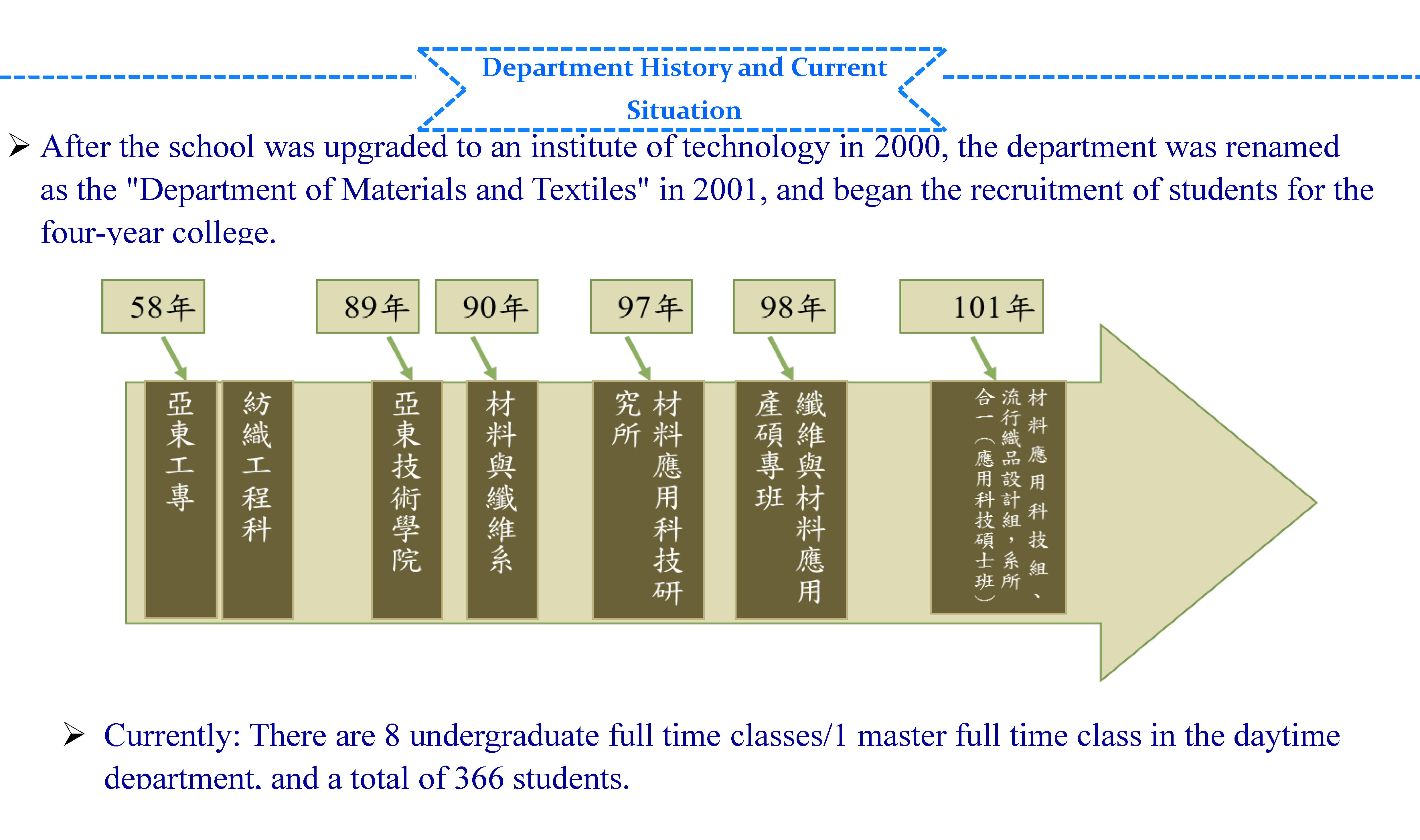

Teaching Features:
1. Active promotion of industry-academia collaboration: Teachers are encouraged to implement research that are practical for industry-academia collaboration, and enhance the teachers' industry technology research and development force, to serve as the basis for driving the development of the Department's key development areas and cultivating students' practical skills.
2. Innovative technologies in the textiles industry: Cultivate fiber and textile technology innovation talents in response to the government's promotion of the fiber and textile industry technology policy.
3. Innovative textiles and clothing design: Cultivate key industry talents through practical courses such as fashion design, textiles development, aesthetics appreciation, innovative thinking, and management and marketing.
4. Polymer processing and application: Actively develop the functional polymer material processing technology and application results through teachers' excellent academic foundation and practical experience, as well as the close cooperation with the industry.
5. Medical material technology development: The department and Far Eastern Memorial Hospital (Medical Research Center) have entered into an academic research alliance. Based on the existing medical materials research results, the department plans to continue to work towards the cross-disciplinary integration of the biomedical technology/technical fiber/polymer materials technologies.
6. Cross-industry technology and knowledge: Cultivate students with key industry skills such as fiber/polymer and textiles/clothing design, as well as application skills such as cross-industry technology and innovative design.
Major Achievements:
1.In the 2017 academic year, through the Optimization Plan for the Practice Environment of Technical and Vocational Schools and the Industry Elite Training Base Establishment Plan of the Ministry of Education, we received a subsidy of NT$50 million and established the " Function and Fashion Textiles Production Line Demonstration Base".
2.In the 2017 academic year, through the "University Social Responsibility Program" Seeding Program (Category A), promoted by the Ministry of Education in 2017, we received a subsidy of NT$1.2 million and implemented the " Create a Three Gorges INDIGOTRON “Landscape of humanities” - For Indigo, For Tea, For Health" Initiative.
3.From 2017-2019, we received a grant for a total of three projects under the Promotion of the Hakka Culture by Private Colleges and Universities Program from the Hakka Affairs Department, New Taipei City Government.
4.In the past three years, the Department of Materials and Textiles has passed 5 Ministry of Science and Technology industry-academia cases, and 61 industry-academia collaboration cases.
5.For nine consecutive years since the 2007 academic year, we have been implementing the Industry Talent Incubation Plan of the Industrial Development Bureau, MOEA.
6.From the academic year of 2013-2016, we were approved by the Ministry of Education to organize the Industry College 2-phase 4-year project.
Department of Materials and Textiles - Materials Applied Technology Division
I. Recruitment Category: High school students applying for admission, Mechanical Engineering, and engineering and management
II. Teaching Goals: Cultivate fiber/polymer and materials application talents with professional expertise and practice, as well as dedication to their work and respect for their peers.
III. Curriculum:
1. Educational foundation course:
Chromatics, physics, basic chemistry, chemistry, chemical experiments, organic chemistry, organic chemistry experiments, interface science, biotechnology, biochemical engineering, creative thinking and aesthetic design.
2. Materials application:
Introduction to materials science, materials processing and manufacturing process, materials science experiment, technology materials application, introduction to composite materials, biomedical materials, green materials, materials testing and internship, polymer science, polymer processing, functional polymers, engineering plastics, and special research topics.
3. Fiber/Textiles:
Introduction to fiber science, fiber science, fiber and yarn engineering, fiber and yarn engineering practice, fabric forming, woven fabric design, knitwear design, dyeing process, dyeing process practice, fabric finishing process, fabric finishing process practice, printing process, printing process practice, and special topics research.
4. Management and marketing:
Exhibition planning and design, career development, e-commerce, management, marketing management, innovation management, fashion textiles product planning, and textile trade practice.
IV. International Cooperation, Competition, and Industry-Academia Collaboration:
1. International seminars and international workshops: Product planning workshop with Professor Nobukazu Azuma of Aoyama Gakuin University, Japan, Professor Takeshi Kikutani of Tokyo Institute of Technology, Japan, and 4-Options of the Netherlands.
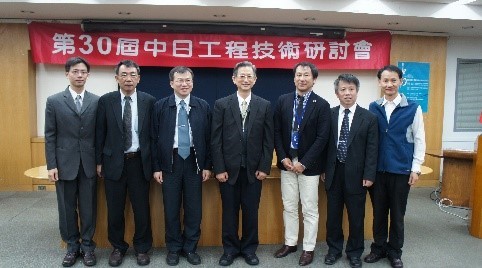
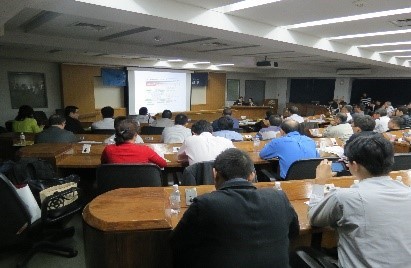

2. Themed competitions and industry-university alliances: National Technical and Vocational College Student Themed Competition, National Textile Technical Paper Competition; entering an industry-university cooperation alliance with the domestic industry (including research units).
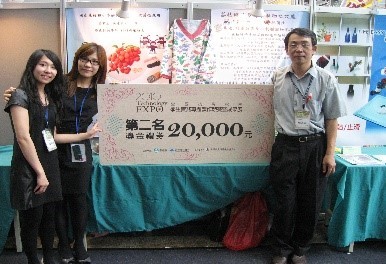
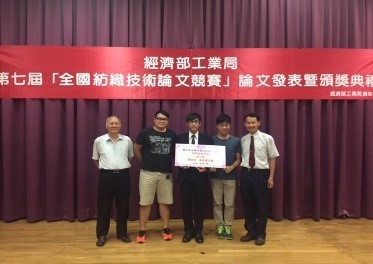
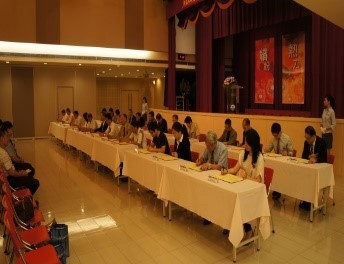
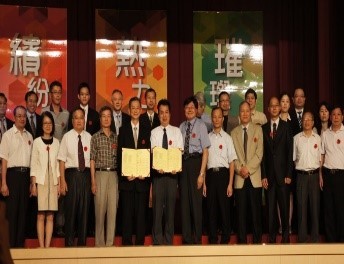
V.Off-campus Internship:
For fourth-year students, the department promotes and carries out overseas internships, summer internships and full-year industrial internships (work allowance: basic salary NT$26,000/month) in materials application, polymer and textile industry manufacturing, research and development, quality control, and business. Students will be able to connect and adapt to the workplace early, and those with good performance in the industry internships will be given priority when companies recruit talents.
VI. Employment and Further Studies
1. Employment: R&D, manufacturing processing, business, engineering, testing, quality control, textile special examination, and customs public office etc. in materials, high-tech, polymer and textile related industries.
2. Further studies: Research institutes in materials engineering, biomedicine, biotechnology, chemistry and chemical engineering.
 |
 |
 |
|---|---|---|
| 3D printing | Digital printing | Tilapia artificial aggregate |
Department of Materials and Textiles - Textiles and Clothing Design Division
I. Recruitment Category: Design group and home economics group life application class
II. Teaching Goals: Cultivate design/pattern production and development talents in fashion textiles /clothing industry with professional expertise and practice, as well as dedication to their work and respect for their peers.
III. Curriculum:
1. Educational foundation course: Fashion trends, creative thinking and aesthetic design, design history, art history, fashion design sketching, fashion design painting, creative foundation, chromatics, computer graphics, computer-aided design, and industrial analysis.
2. Textiles design: Textiles materials science, yarn crafting technology, woven fabric crafting and design, knitwear crafting and design, dyeing crafting technology, printing and finishing crafting technology, textiles performance appraisal, and integrated design topics.
3. Fashion design and production: Chinese clothing history, Western clothing history, costume composition and production, costume composition and production practice, computer aided pattern-making, three-dimensional tailoring, garment crafting, women's fashion certification guidance, fashion outfit product planning, functional clothing planning, and integrated design topics.
4. Management and marketing: Exhibition planning and design, e-commerce, management, marketing management, innovation management.
IV. International cooperation and exhibition:
1. Workshop (French designer Aurore Thibout) - recycled fabrics for re-manufacturing and design, screen printing that express space/layers.
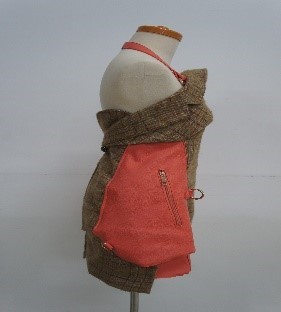
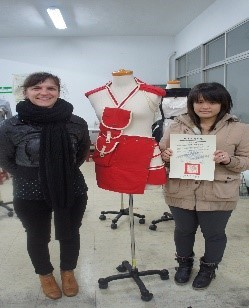
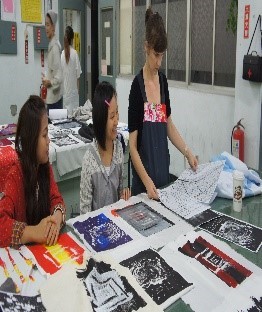
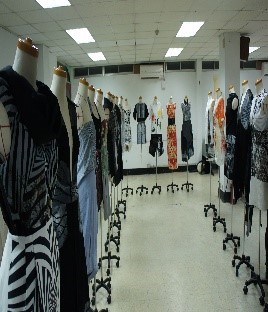
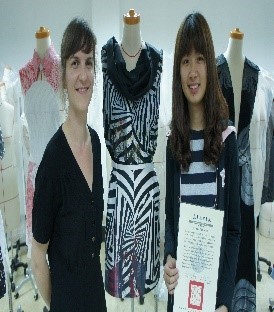
2.Fashion shows (Clothing for Chairs, Clothing give Heart Rebirth)
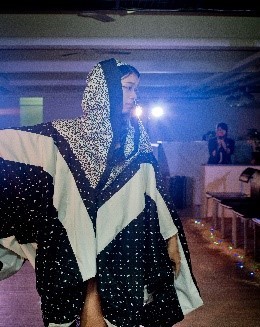

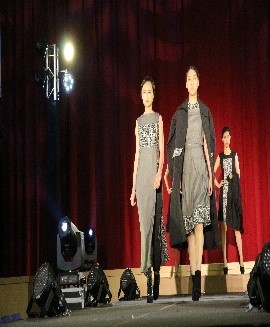
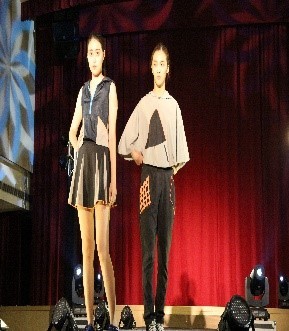
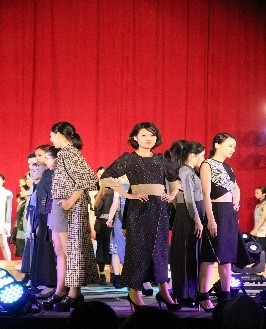
V. Off-campus Internship:
For fourth-year students, the department promotes and carries out overseas internships, summer internships and full-year industrial internships (work allowance: basic salary NT$26,000/month) in textiles and apparel industry manufacturing, design and development, quality control, and business. Students will be able to connect and adapt to the workplace early, and those with good performance in the industry internships will be given priority when companies recruit talents.
VI. Employment and Further Studies
1. Employment: Textiles designers, fashion pattern makers, apparel samplers, fashion designers, merchandise planning, personal studios, apparel marketing, textile special examination, and customs public office etc.
2. Further studies: Related research institutes for costume design, fashion design, and business design.
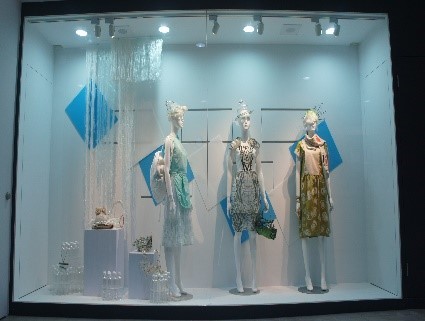 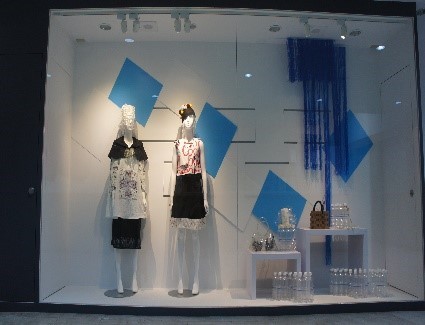 |
 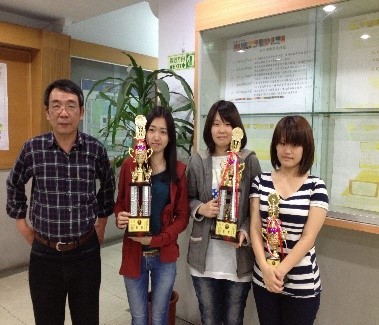 |
|---|---|
| Design display | Award winning students in costume painting |
History of the Master's Program
The school was founded in 1968 as the "Oriental Academy of Industrial Technology". It was the first two-year private college in Taiwan and it has cultivated many outstanding technical professionals over the years. In order to implement the technical and vocational education objectives and facilitate smooth technical career channels, the application for restructuring in 2000 was approved by the Ministry of Education and we were renamed as "Oriental Institute of Technology".
In view of implementing technical and vocational education objectives and assisting in the upgrade of industry technology, the school established the "Research Institute of Materials Applied Science and Technology " in 2008. Based on the development of industry application technology, the "Fiber and Polymer Materials Division" and "Metals and The Nano-Materials Division" were established for the first time to cultivate the development of industry R&D talents. In order to further meet the needs of industrial technology innovation and new product research and development, as well as to achieve the talent training goal of the College of Engineering to cultivate talents with innovative design and engineering technology capabilities, in the 2011 academic year, the application for renaming was sent in and we were renamed as "Research Institute of Applied Science and Technology ", and the institute was restructured. The internal organization is focused on the three groups of "materials", "manufacturing" and "design" to train students to become industrial technology innovation talents with technological application and integration capabilities. Application for the integration of the department and institute was sent in 2012 and we were renamed as the "Department of Materials and Textiles, Master Program of Applied Science and Technology", focusing on the "materials" and "manufacturing" groups, with the main emphasis on the research of polymer materials, metals, biomedical materials and nano-materials, to train R&D talents in key industries. From the beginning of the 2013 academic year, in order to implement the professional foundation of the department integration, the main focus was on the research and development of performance/functional textiles, polymer materials, biomedical materials, and nano-materials, and the cultivation of R&D talents in materials and textiles-related industries.
Master Program of Applied Science and Technology
Educational Objectives
The educational goal of this master's program is to cultivate talents in the application and research and development of materials with professional expertise and practice, as well as dedication to their work and respect for their peers. Through professional core subjects, technical core subjects and common industry technical subjects, students are provided with pragmatic professional knowledge and skills. At the same time, they closely cooperate with teachers' production and learning research projects to train students to become technical experts in national key industries.
Teaching Features
‧Curriculum --
Fiber physics and chemistry specialization, organic materials specialization, R&D innovation and intellectual property management, functional polymer specialization, medical materials, functional textile specialization, fiber dyeing and processing specialization, fiber finishing and processing specialization, fiber processing specialization, nano-material application, composite materials specialization, industry practical internship (1) (2).
‧Professional Classrooms --
Fiber Processing Lab/Polymer Processing Lab/Biochemical Lab/Nano-Materials Lab/Biomedical Materials Lab/Optical Instrument Room/Precision Instrument Room.
Future Development
‧Further studies - doctoral programs in materials application/textile fiber/polymer/chemical processing/biology/chemistry/biotech cosmetics/optoelectronics/medical engineering.
‧Employment - related industries such as fiber/polymer/materials.
‧Certification - license or civil service examination in materials, chemistry and chemical industry.